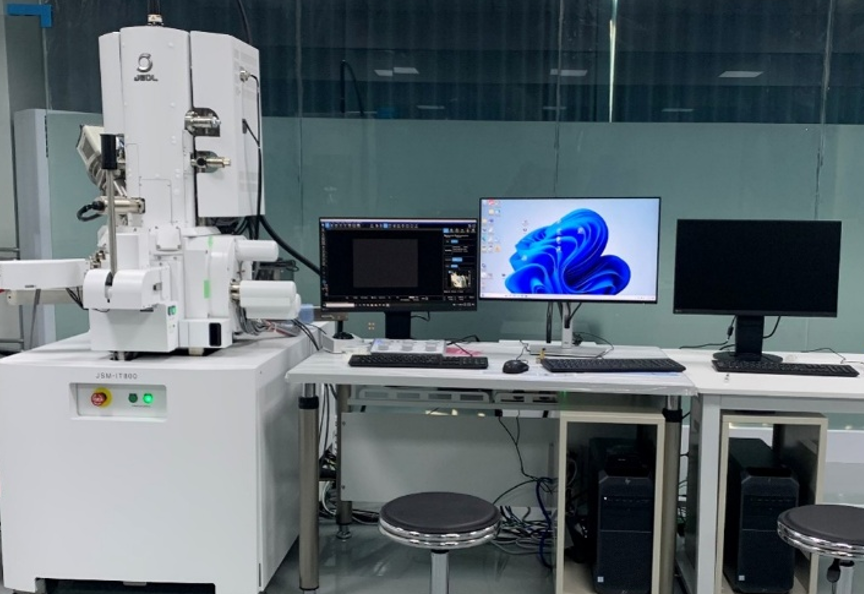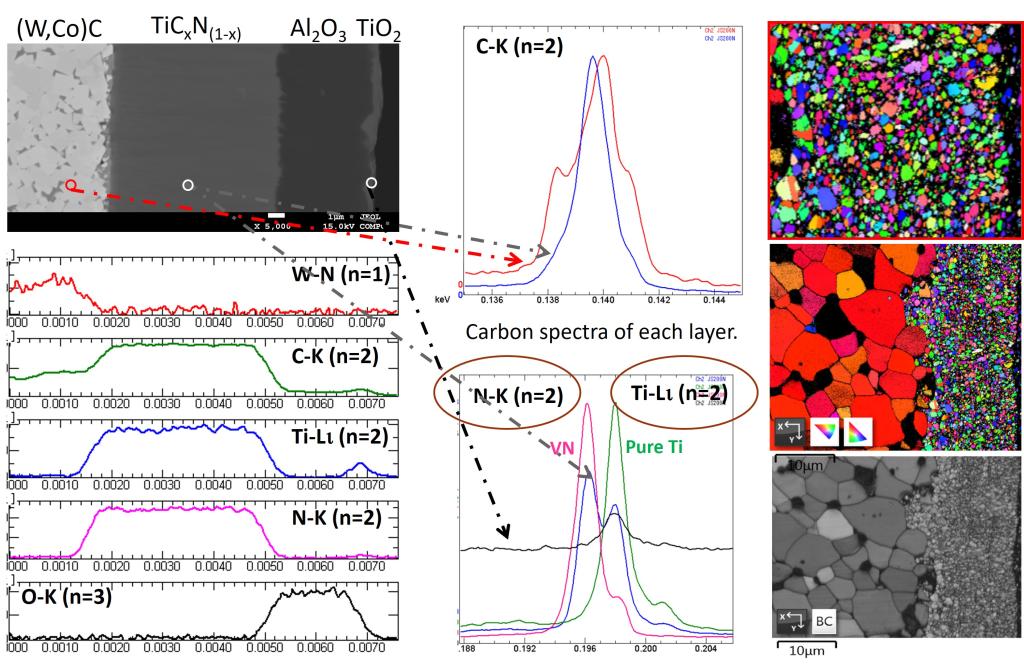Recently, the first soft X-ray-electron backscatter diffraction (EBSD)-energy dispersive spectrometer (EDS) integrated system in northwest China—procured under the leadership of our institute—has been officially commissioned for open, shared use. The platform will be accessible to universities and research institutes nationwide, offering comprehensive services that span technical consultation, sample testing, and data analysis. The introduction of this flagship instrument marks a pivotal step in our institute’s discipline development and represents a milestone in the construction of the university’s General Analytical Testing Center. It will provide researchers with more comprehensive and precise analytical capabilities, empowering innovation and breakthroughs in fundamental research across our university.

The soft X-ray-EBSD-EDS integrated system.
The soft X-ray-EBSD-EDS integrated system is an advanced microscopic analysis device that integrates high-resolution imaging, micro-area composition analysis, crystal structure analysis, and chemical valence research. The system combines a soft X-ray spectrometer, an electron optical system, an energy spectrometer system, and an electron backscatter diffraction instrument, enabling comprehensive analysis of material morphology, composition, crystal structure, and chemical bonding states at the nanoscale within an identical micro-region. It is also equipped with a cold stage, allowing for multi-faceted characterization of special materials at ultra-low temperatures, providing powerful support for research in materials science, chemistry, physics, and other fields.

Typical applications: multi-interface analysis of materials from images, components, structures to chemical bonding states.
The college actively responds to the national science and technology innovation strategy and the university’s directives, and is committed to promoting open access to major scientific instruments. It has formed an equipment procurement and management team led by professors responsible for the discipline, and explores a full-cycle operational mechanisms of large-scale equipment that covers equipment evaluation, installation and debugging, personnel training, and routine maintenance, to ensure the long-term and high-efficiency utilization of the equipment. The college will take this opportunity to continuously promote interdisciplinary cooperation and exchange, and drive the research of relevant disciplines at our university to a higher level.
